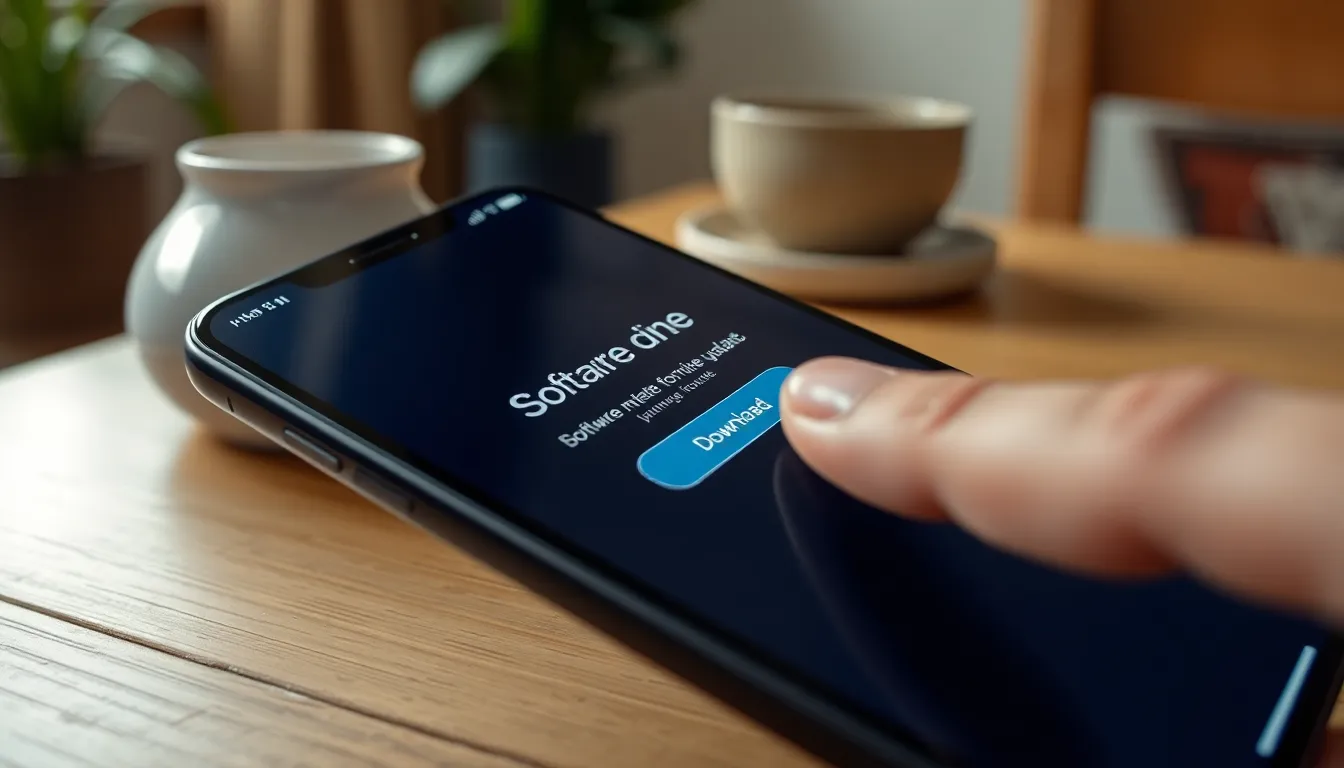Table of Contents
TogglePicture this: you’re all set to download the latest app that promises to revolutionize your life, but your iPhone suddenly turns into a digital diva, refusing to cooperate. Frustrating, right? It’s like your phone’s throwing a tantrum, and you’re left scratching your head, wondering what went wrong.
Common Reasons For Inability To Download Apps
Issues related to downloading apps on an iPhone can stem from various factors. Understanding these common reasons can help identify the problem quickly.
Storage Space Issues
Limited storage space often creates barriers for app downloads. When an iPhone lacks sufficient free space, it blocks new apps from being installed. Users can check storage by navigating to Settings, tapping on General, and selecting iPhone Storage. Deleting unused apps, photos, or files can free up space. Generally, aim for at least 1-2 GB of available space for new installations.
Network Connectivity Problems
Network connectivity issues frequently hinder app downloads as well. A weak or unstable internet connection leads to interruptions during the download process. Users should ensure they are connected to a reliable Wi-Fi network or cellular data before attempting to download apps. Restarting the router or toggling Wi-Fi off and on may improve connection issues. Always check for data limits, as reaching those can also impede downloads.
Software Update Challenges

Software updates play a crucial role in app functionality. An outdated iOS version can result in challenges when trying to download new apps.
Outdated iOS Version
Running an outdated iOS version limits access to the latest app features. App developers optimize their products for the latest updates to ensure performance and security. Users can check for updates by going to Settings, selecting General, and tapping on Software Update. If an update is available, downloading and installing it often resolves downloading issues. Ideally, updating iOS not only enhances the overall user experience but also ensures compatibility with recently released applications.
App Compatibility Issues
Certain apps may not support older iOS versions. Compatibility issues arise when developers base their apps on the latest iOS features unavailable on outdated systems. Users might notice that attempting to download such apps leads to errors or failures. Checking the app’s requirements in the App Store provides clarity on whether the device supports it. Regularly updating iOS helps prevent these compatibility conflicts, ensuring a smoother downloading experience overall.
Account-Related Obstacles
Account-related issues can prevent app downloads on an iPhone. Problems often stem from Apple ID verification or payment methods.
Apple ID Verification Issues
Users can experience difficulties with their Apple ID verification process. An incorrect password causes account access problems, preventing app downloads. If two-factor authentication is enabled, enter the verification code sent to another device. Failure to verify the Apple ID may also stem from regional restrictions. Check if the account settings align with the location to avoid conflicts. It’s vital to regularly update the Apple ID information, including security questions and recovery email. Missing or outdated details can lead to potential verification failures.
Payment Method Problems
Payment method discrepancies may also block app downloads. Users should ensure an active payment method linked to their Apple ID. An expired credit card or insufficient funds leads to transaction errors. Users can check and update their payment information directly through the App Store settings. Selecting an appropriate payment method, including PayPal or debit cards, might help resolve issues. In some instances, temporary holds by banks may trigger payment failures, requiring users to contact their bank for clarity.
Troubleshooting Steps
Troubleshooting the app download issue involves a few straightforward steps. Users can follow specific procedures to identify and resolve the problem effectively.
Restarting Your iPhone
Restarting an iPhone often resolves minor glitches hindering app downloads. Press and hold the side button along with the volume up or down button until the slider appears. After sliding to power off, wait for about 30 seconds before turning the device back on. Once the phone powers up, attempt to download the app again. This simple reset may restore functionality and clear temporary issues affecting network connections.
Resetting Network Settings
Resetting network settings can fix connectivity problems that disrupt app downloads. Navigate to Settings, select General, then tap on Reset or Transfer. Choose Reset Network Settings and confirm the action. This process erases saved Wi-Fi networks and passwords, so users should have that information handy. After completing the reset, reconnect to the Wi-Fi network and test the app download again. Often, this step resolves underlying connectivity issues.
Experiencing issues when trying to download apps on an iPhone can be frustrating. By understanding common barriers such as storage limitations network connectivity and software compatibility users can take proactive steps to resolve these problems. Regularly checking for iOS updates and ensuring Apple ID information is current can make a significant difference.
Implementing simple troubleshooting techniques like restarting the device or resetting network settings often leads to successful downloads. With a little patience and the right approach users can enjoy a seamless app downloading experience on their iPhones.




